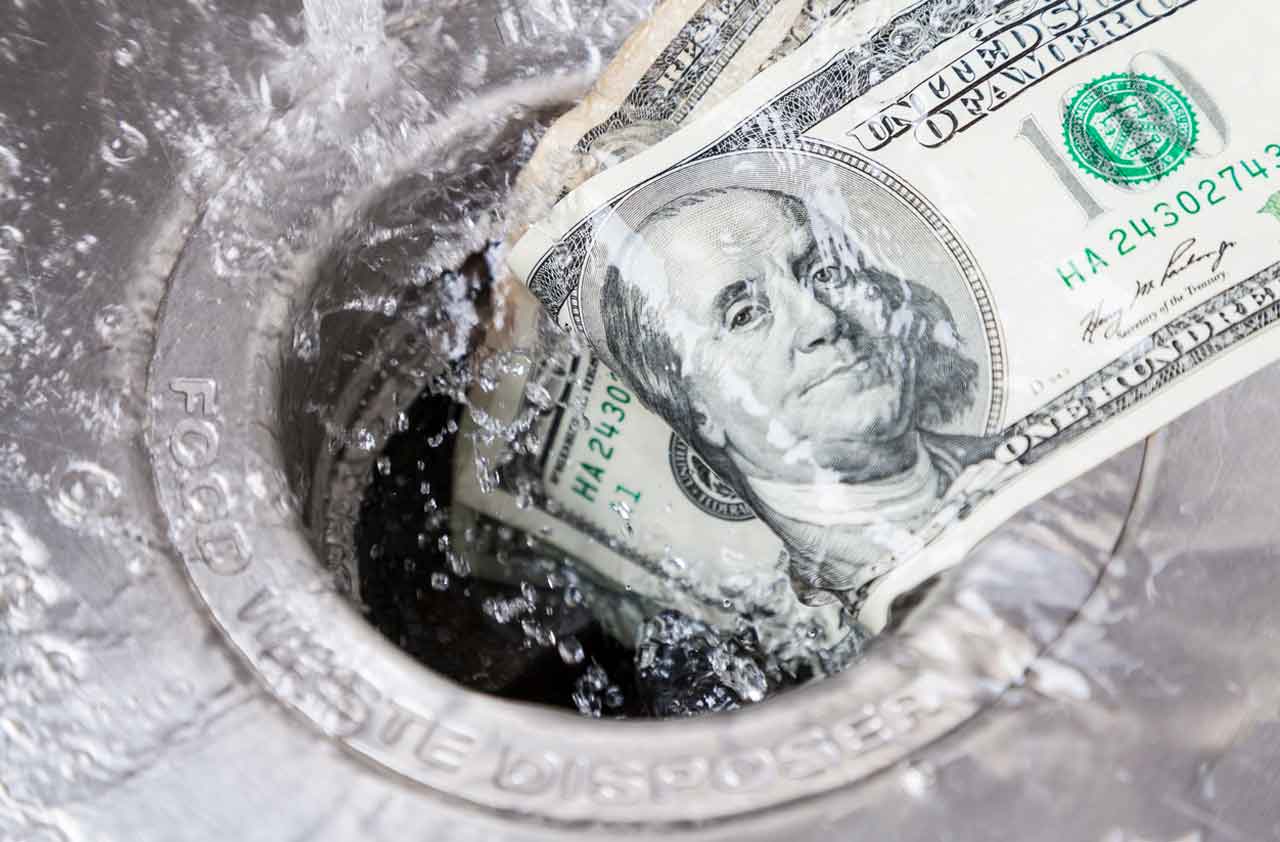Entrepreneurs Pay Too Much in Taxes Because They Don’t Do This
Tax planning isn't something a lot of owners of small businesses are passionate about, but for some, it could be a make-or-break proposition.


Profit and prosper with the best of Kiplinger's advice on investing, taxes, retirement, personal finance and much more. Delivered daily. Enter your email in the box and click Sign Me Up.
You are now subscribed
Your newsletter sign-up was successful
Want to add more newsletters?

Delivered daily
Kiplinger Today
Profit and prosper with the best of Kiplinger's advice on investing, taxes, retirement, personal finance and much more delivered daily. Smart money moves start here.

Sent five days a week
Kiplinger A Step Ahead
Get practical help to make better financial decisions in your everyday life, from spending to savings on top deals.

Delivered daily
Kiplinger Closing Bell
Get today's biggest financial and investing headlines delivered to your inbox every day the U.S. stock market is open.

Sent twice a week
Kiplinger Adviser Intel
Financial pros across the country share best practices and fresh tactics to preserve and grow your wealth.

Delivered weekly
Kiplinger Tax Tips
Trim your federal and state tax bills with practical tax-planning and tax-cutting strategies.

Sent twice a week
Kiplinger Retirement Tips
Your twice-a-week guide to planning and enjoying a financially secure and richly rewarding retirement

Sent bimonthly.
Kiplinger Adviser Angle
Insights for advisers, wealth managers and other financial professionals.

Sent twice a week
Kiplinger Investing Weekly
Your twice-a-week roundup of promising stocks, funds, companies and industries you should consider, ones you should avoid, and why.

Sent weekly for six weeks
Kiplinger Invest for Retirement
Your step-by-step six-part series on how to invest for retirement, from devising a successful strategy to exactly which investments to choose.
As we head deeper into tax season, we’re starting to hear from more and more Americans experiencing sticker shock as they file their returns. Gone is the comforting and often sizable refund check they’ve come to expect every year. Instead, they’re finding they’re owed much less than in previous years or, in the worst cases, are in debt to Uncle Sam for the first time in their lives.
There is a certain, somewhat understandable, psychology at play here. Even if their paltry refund or shocking tax bill comes in a year in which they’ve paid less in taxes overall, Americans still feel screwed when their annual windfall doesn’t arrive. Businesses are no different. For newly successful entrepreneurs, though, this same tax season despair has nothing to do with the changes to our tax laws. What connects both is a failure to plan.
Most entrepreneurs just starting out don’t have a clue that they can even do tax planning. They’ve started their business, they know they need someone to do their taxes for them, and they meet with a CPA who tells them they should be set up as a single-member LLC, which gives them liability protection.
From just $107.88 $24.99 for Kiplinger Personal Finance
Become a smarter, better informed investor. Subscribe from just $107.88 $24.99, plus get up to 4 Special Issues

Sign up for Kiplinger’s Free Newsletters
Profit and prosper with the best of expert advice on investing, taxes, retirement, personal finance and more - straight to your e-mail.
Profit and prosper with the best of expert advice - straight to your e-mail.
What that accountant doesn’t tell them, in most cases, is that this may be a much more expensive way to operate, since now all of their profits are taxed as self-employment income.
That might make it easier for their accountant, who doesn’t have to file another tax return. But at the end of the year that could be a very costly mistake, because being hit with a giant tax bill doesn’t just hurt the business, it could pose a threat to its continued existence.
Typically, most entrepreneurs avoid tax planning for one of three understandable reasons, or sometimes all three at once:
- They don’t know they should do it.
- Their accountant hasn’t told them to.
- They’re terrified of the IRS, and they’re almost willing to overpay out of fear.
It goes back to the old business adage: What got you here won’t get you there. The entrepreneur has a great idea. They start their business, and soon they’re making money. That’s fantastic. But nothing can quite prepare them for a $200,000 tax bill that they weren’t expecting because they didn’t know, for instance, that it probably made more sense to set up an S Corp rather than an LLC.
They didn’t hire the right accountants for their business, perhaps because they assumed their business was too small to need that sort of pricey advice. At the time, hiring a friend or the guy who had handled Mom and Dad’s returns made sense. Now it no longer does. The worst part: The problem only gets bigger as their company gets more successful. What should feel like a win instead feels like a loss.
And what of that giant tax bill they weren’t expecting? More often than not, they’ll pay it once, twice, maybe even three times before they ask the right questions and learn that there are ways they can avoid these kinds of surprises.
In the meantime, those big tax bills are cutting into working capital, depriving the entrepreneurs and the business of the one thing they need to compete and continue growing. If they write a large check enough times, they’ll eventually get frustrated and do something about it — assuming they haven’t paid so much that their very business is at risk.
It’s never too late for entrepreneurs to start planning. And it all begins with one, straightforward question: What can I do to reduce my tax bill? If the accountant’s response is that they’re already doing everything they can do, it’s probably time to find someone else.
New businesses don’t know what they don’t know. If an entrepreneur trusts someone enough to set up their company, they probably trust that person enough to save them the maximum amount come tax time. They think they’re protected. They think they're invincible. And, unfortunately, that sort of thinking ends up costing them a lot of money.
Profit and prosper with the best of Kiplinger's advice on investing, taxes, retirement, personal finance and much more. Delivered daily. Enter your email in the box and click Sign Me Up.

Bruce Willey has been working with small to midsize businesses across the country for more than a decade, helping them navigate business and tax law in a variety of situations. His services include assisting with business start-ups, operations, growth, asset protection, exit planning and estate planning.
-
 Are You 'Too Old' to Benefit From an Annuity?
Are You 'Too Old' to Benefit From an Annuity?Probably not, even if you're in your 70s or 80s, but it depends on your circumstances and the kind of annuity you're considering.
-
 Seeing Retirement Ahead? Why Your 50s Will Be So Significant
Seeing Retirement Ahead? Why Your 50s Will Be So SignificantThis is the perfect time to assess whether your retirement planning is on track and determine what steps you need to take if it's not.
-
 Your Retirement Isn't Set in Stone, But It Can Be a Work of Art
Your Retirement Isn't Set in Stone, But It Can Be a Work of ArtSetting and forgetting your retirement plan will make it hard to cope with life's challenges. Instead, consider redrawing and refining your plan as you go.
-
 Retiring Next Year? Now Is the Time to Start Designing What Your Retirement Will Look Like
Retiring Next Year? Now Is the Time to Start Designing What Your Retirement Will Look LikeThis is when you should be shifting your focus from growing your portfolio to designing an income and tax strategy that aligns your resources with your purpose.
-
 I'm a Financial Planner: This Layered Approach for Your Retirement Money Can Help Lower Your Stress
I'm a Financial Planner: This Layered Approach for Your Retirement Money Can Help Lower Your StressTo be confident about retirement, consider building a safety net by dividing assets into distinct layers and establishing a regular review process. Here's how.
-
 How to Get the Fair Value for Your Shares When You Are in the Minority Vote on a Sale of Substantially All Corporate Assets
How to Get the Fair Value for Your Shares When You Are in the Minority Vote on a Sale of Substantially All Corporate AssetsWhen a sale of substantially all corporate assets is approved by majority vote, shareholders on the losing side of the vote should understand their rights.
-
 I'm a Financial Adviser: This Is Why I Became an Advocate for Fee-Only Financial Advice
I'm a Financial Adviser: This Is Why I Became an Advocate for Fee-Only Financial AdviceCan financial advisers who earn commissions on product sales give clients the best advice? For one professional, changing track was the clear choice.
-
 I Met With 100-Plus Advisers to Develop This Road Map for Adopting AI
I Met With 100-Plus Advisers to Develop This Road Map for Adopting AIFor financial advisers eager to embrace AI but unsure where to start, this road map will help you integrate the right tools and safeguards into your work.
-
 The Referral Revolution: How to Grow Your Business With Trust
The Referral Revolution: How to Grow Your Business With TrustYou can attract ideal clients by focusing on value and leveraging your current relationships to create a referral-based practice.
-
 The Key to a Successful Transition When Selling Your Business: Start the Process Sooner Than You Think You Need To
The Key to a Successful Transition When Selling Your Business: Start the Process Sooner Than You Think You Need ToWay before selling your business, you can align tax strategy, estate planning, family priorities and investment decisions to create flexibility.
-
 4 Ways Washington Could Put Your Retirement at Risk (and How to Prepare)
4 Ways Washington Could Put Your Retirement at Risk (and How to Prepare)Legislative changes, such as shifting tax brackets or altering retirement account rules, could affect your nest egg, so it'd be prudent to prepare. Here's how.